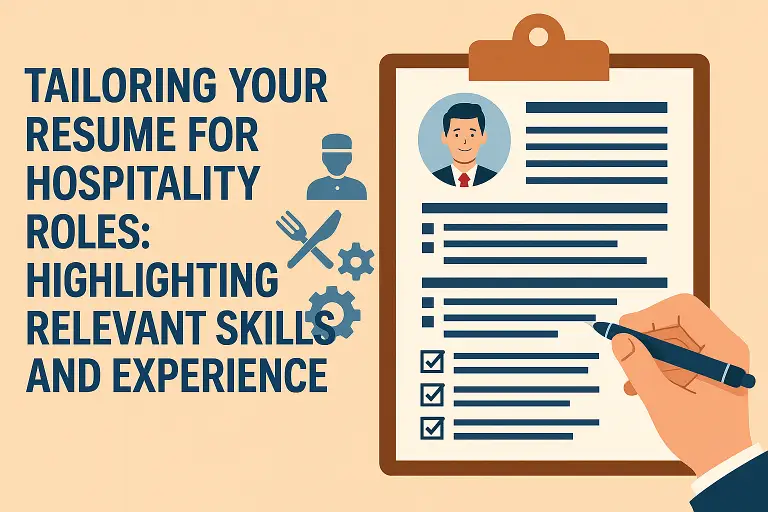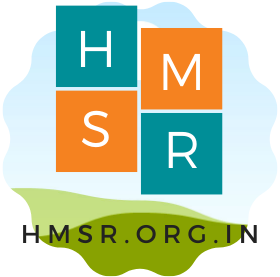- CV vs Resume vs Biodata: Compare 2 Key Differences for Successful Hospitality Jobs
- How to Craft a Winning Hospitality Resume: Essential Tips and Best Practices
- Creating a Standout CV for Hospitality Jobs: What Recruiters Want to See
- Biodata Essentials: How to Present Yourself Professionally in the Hospitality Sector
- Tailoring Your Resume for Hospitality Roles: Highlighting Relevant Hospitality Skills and Experience
A one-size-fits-all resume rarely works in the fast-paced, customer-centric world of hospitality. Whether you’re applying for a front desk position, a food and beverage role, or a managerial job, Skills must take center stage in your resume. Employers are actively looking for candidates who can show industry-relevant hospitality skills that align with the role. In this guide, we’ll dive into how to tailor your resume for various hospitality roles, with a focus on showcasing Hospitality Skills and experience effectively.
Why Tailoring Your Resume Matters in Hospitality
The hospitality industry is vast, covering hotels, resorts, restaurants, cruises, event planning, and more. Employers look for candidates whose resumes show the Hospitality Skills needed for the specific job. A tailored resume shows that you:
- Understand the specific requirements of the role
- Have relevant, hands-on Hospitality Skills
- Are detail-oriented and proactive
- Value the guest experience and service excellence
Customizing your resume increases your chances of making it past applicant tracking systems (ATS) and getting noticed by hiring managers.
Step-by-Step Guide to Tailoring Your Hospitality Resume

1. Study the Job Description Carefully
Begin by reviewing the job listing. Read each part carefully to understand the expectations. Highlight keywords such as Skills, technical abilities, responsibilities, and soft skills like adaptability and teamwork.
Look for:
- Keywords like “guest relations,” “POS systems,” “team leadership”
- Desired Skills
- Responsibilities and preferred qualifications
- Soft skills like communication, teamwork, and cultural sensitivity
2. Match Your Skills with the Role
Compare your current skill set with the job description. Identify where your experience and Hospitality Skills align with what the employer needs. Then, write bullet points that reflect those matches using clear language.
Example:
Job Listing Requirement: Knowledge of front office software like Opera.
Your Resume: “Proficient in Opera PMS with 2+ years of front desk experience in a 4-star hotel—bringing strong hospitality skills in guest service and check-in efficiency.”
3. Personalize Your Professional Summary
Your summary is your 30-second pitch. Integrate Hospitality Skills that are job-specific. Mention the type of property you’ve worked in and include strengths or certifications relevant to the role.
Generic Summary:
“Hospitality professional with 5 years of experience.”
Tailored Summary:
“Guest-focused front desk associate with 5 years of experience in luxury hotel environments, skilled in Opera PMS, multilingual guest support, and key hospitality skills such as conflict resolution and guest engagement.”
4. Highlight Relevant Experience
Focus on accomplishments that show your Hospitality Skills, not just duties. Use numbers to show results.
For a Food & Beverage Role:
- “Managed a team of 8 servers during peak brunches, increasing table turnover by 15% and using hospitality skills to enhance guest satisfaction.”
For a Front Office Role:
- “Resolved guest complaints efficiently, maintaining a 95% satisfaction rating, thanks to effective hospitality skills in communication and problem-solving.”
5. Focus on Relevant Skills
Separate your Hospitality Skills into technical skills and soft skills. Only include those that align with the job.
- Opera PMS
- Guest engagement
- Complaint handling
Food & Beverage:
- POS system
- Upselling
- Menu knowledge
- Room inspection
- Hygiene protocols
- Time management
Soft Hospitality Skills (for all roles):
- Communication
- Teamwork
- Cultural awareness
- Adaptability
Use your resume to show how these Skills made an impact in past roles.
6. Use Keywords for ATS Optimization
Many employers use ATS software to screen applications. Including Skills as keywords ensures your resume isn’t filtered out.
To optimize:
- Use key terms like “guest experience,” “banquet setup,” “event planning,” and “front office operations.”
- Place Hospitality Skills naturally within your summary, experience, and skills sections.
✅ Tip: Avoid keyword stuffing—keep the language meaningful and context-based.
7. Adapt Your Education and Certifications
Highlight education and certifications that validate your Hospitality Skills and training.
Examples:
- Diploma in Hotel Management, XYZ Institute
- HACCP Certification (for F&B roles)
- First Aid Training (for guest safety roles)
These show that you’ve developed both foundational and specialized Skills.
8. Keep the Format Clean and Focused
A professional layout enhances readability and keeps the focus on your Hospitality Skills.
✅ Best practices:
- Use headers like “Professional Summary,” “Experience,” and “Skills”
- Stick to a reverse chronological order
- Keep it to one page (entry-level) or two pages (experienced)
- Use bullet points to emphasize Skills quickly
Examples of Tailored Resume Snippets
🏨 Front Office Resume Excerpt
Professional Summary: Energetic and detail-oriented Front Office Executive with 4 years of experience in luxury hospitality. Skilled in Opera PMS, guest relations, and multilingual communication. Strong foundation in Hospitality Skills such as reservation management and conflict resolution.
Key Hospitality Skills:
- Guest check-in/check-out
- Reservation management
- Complaint resolution
For visual inspiration, explore hospitality resume samples on ResumeGenius, which can be adapted into a professional biodata format.
🍽️ Food & Beverage Resume Excerpt
Professional Summary: Passionate F&B Associate with 3+ years in fine dining. Proven ability to upsell and maintain high service standards. Excellent Hospitality Skills in menu knowledge, teamwork, and POS system efficiency.
Key Hospitality Skills:
- POS system operation
- Table service etiquette
- Menu knowledge
Bonus Tips for Tailoring Your Hospitality Resume
- Use strong action verbs like “managed,” “delivered,” “coordinated,” and “enhanced”
- Quantify achievements: “Boosted guest satisfaction by 20%”
- Cut irrelevant jobs unless they demonstrate transferable Skills
- Proofread to eliminate errors and formatting inconsistencies
Final Thoughts
Tailoring your resume is about more than just tweaking words. It’s about showing the employer that you have the precise Hospitality Skills they’re looking for. By aligning your resume with the job description, emphasizing relevant skills and experience, and keeping your format clean, you create a compelling application that stands out.
Your Hospitality Skills are your greatest asset—make them visible, relevant, and undeniable.
In this article –
If you’re following our Crafting Your Hospitality Career Toolkit series, don’t miss the earlier articles that build a strong foundation for your journey. Don’t forget Biodata Essentials, where we guide you on presenting your personal and academic background professionally. These resources work together to shape a complete, strategic approach to launching or growing your hospitality career.


Comments are closed, but trackbacks and pingbacks are open.